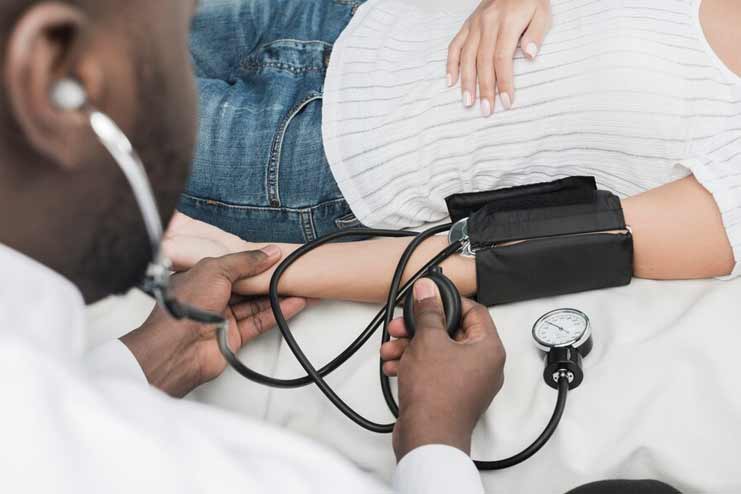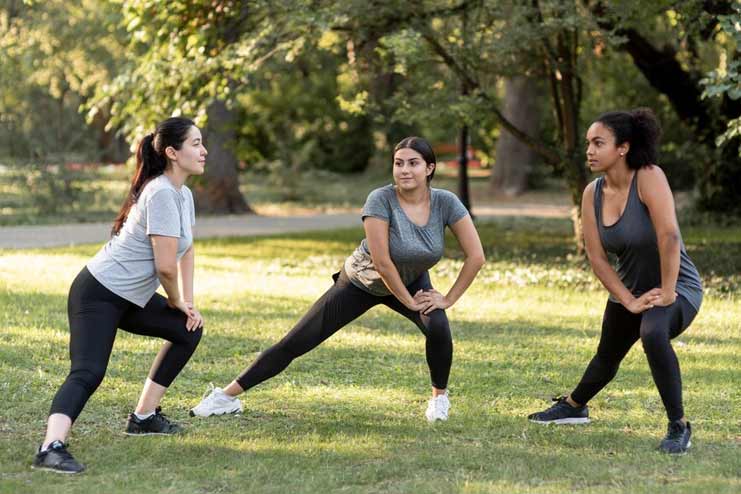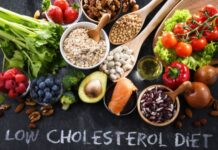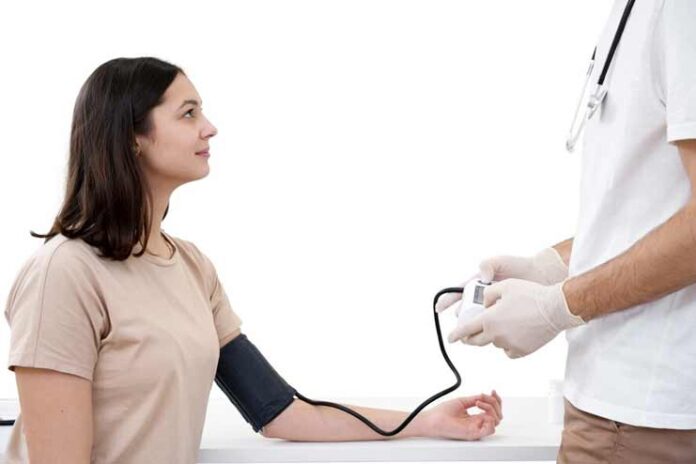Affiliate Disclaimer
Some links in this article are affiliate links. We may earn a small commission if you make a purchase through these links, at no extra cost to you. We only recommend products we find useful to our readersStress causes the release of stress hormones such as adrenaline and cortisol into the blood. They prepare the body for a “fight or flight” response, which increases the heartbeats and constricts the blood vessels. Such temporary elevation in blood pressure may gradually become a chronic issue with time.
Continuous high blood pressure can lead to heart diseases, strokes, and other dangerous ailments. Knowing the interrelation between stress and hypertension is very important. Let’s find out how stress affects blood pressure and how to manage both effectively.
Understanding Stress Hormones and Blood Pressure

Stress hormones, cortisol and adrenaline, play an important role in the stress response of the human body and the cardiovascular system. When you become stressed, these hormones are released and trigger certain physiological responses to counteract the effects of stress. Cortisol and adrenaline increase heart rate and cause blood vessels to constrict, increasing blood pressure temporarily. If stress persists and becomes chronic, blood pressure stays high for longer periods. This is called hypertension. Other causes include a stressful lifestyle, poor diet, physical inactivity, etc.
HS Recommended Article: 6 Lifestyle Changes to Reduce Your Risk of Hypertension
Chronic Stress and Long-Term Hypertension

Chronic stress contributes to long-term hypertension and can seriously affect cardiovascular health. When the body is under constant stress, it releases hormones such as cortisol and adrenaline. These hormones, while beneficial in acute stress situations, can cause sustained elevations in blood pressure when present chronically.
Long-term exposure to stress causes hypertension, a condition that occurs due to constant pressure on blood vessels and the heart. This increases the risk of cardiovascular diseases like heart attacks, strokes, and heart failures. Job strain, social isolation, and socioeconomic status also cause chronic stress.
Each of these stressors independently affects the development and maintenance of hypertension. Physiological mechanisms include persistent activation of the sympathetic nervous system. It is responsible for raising heart rate and blood vessel constriction over a long period.
1. Mindfulness and Meditation

Meditation and mindfulness are powerful stress-relieving techniques. They help a person to live in the present, reduce the influence of stressors, and promote relaxation. Mindfulness is being aware of your thoughts, feelings, and environment, while meditation involves practices for mental clarity and peace.
How Mindfulness and Meditation Help in Improving Cardiovascular Health:
Reduction of Stress Hormones: Mindfulness and meditation reduce the production of stress hormones such as cortisol and adrenaline. Lower levels of these hormones will put less pressure on the heart and the blood vessels.
Lower Blood Pressure: With regular meditation, blood pressure lowers, thereby promoting normal blood flow. This reduces the risk of increased blood pressure.
Improved Heart Rate Variability: It improves HRV, an indicator of cardiac health. The greater the HRV, the healthier the heart will be. Its adaptability to stress also gets better.
Reduces Inflammation: Chronic stress leads to increased inflammation, resulting in heart diseases. Mindfulness and meditation reduce inflammatory markers in the body.
Healthier Lifestyle: Healthy lifestyle habits such as a balanced diet, regular exercise, and sound sleep keep the heart healthy.
Tips to Help Practice Mindfulness in Everyday Life:
Start with Short Sessions: Meditate for 5-10 minutes daily. Gradually increase the duration when you become comfortable.
Establish a Routine: Do it at the exact time every day, either in the morning or before going to bed. Make it a habit.
Guided Meditations: Apps like Headspace, Calm, or Insight Timer offer guided meditations for both beginners and advanced meditators.
Mindful Breathing: Only a few minutes a day is all that is needed to focus on your breathing. Breathe deeply, then hold, then exhale slowly.
Practice Mindfulness: Implement mindfulness into daily activities, such as eating, walking, or cleaning. Start observing your experiences.
Group Support: Join a local or online meditation group to motivate and inspire you.
By incorporating mindfulness and meditation into your life, it is easy to lower stress levels, improve heart health, and lead a healthy life.
Next Read: 7 Morning Meditation Rituals to Start Your Day with Clarity and Focus
2. Regular Physical Activity

Engaging in regular physical activity helps manage stress and control blood pressure. Exercise helps the body produce endorphins, which are natural mood lifters, and it reduces levels of the stress hormone cortisol. Together, these two alleviate stress and promote cardiovascular health by improving heart function and blood circulation. You may start with activities you enjoy and gradually increase the intensity and duration.
Benefits of Regular Exercise for Stress and Blood Pressure:
Reduces Stress Hormones: Exercise lowers cortisol and adrenaline levels, helping to control stress and anxiety.
Enhances Mood: Physical activity stimulates the production of endorphins, which can improve mood.
Improves Sleep: Regular exercise helps people fall asleep faster and enjoy quality sleep, which is essential for stress management.
Lowers Blood Pressure: It helps maintain healthy blood pressure levels by improving heart function and arterial flexibility.
Boosts Cardiovascular Health: Regular physical activity strengthens the heart and improves blood flow. Therefore, it reduces the risk of hypertension and heart disease.
Effective Physical Activities for Stress Reduction:
Walking: Walking is a simple exercise that can provide additional stress-relief benefits.
Yoga: It comprises physical movement in the form of poses, meditation, and deep breathing. It reduces stress and improves flexibility and strength.
Swimming: It offers a full-body workout and is gentle on the joints. This makes it an excellent choice for overall fitness.
Cycling: Cycling is a great cardiovascular workout. You can choose a regular outdoor or a stationary bike.
Strength Training: Lifting weights can boost confidence and reduce stress by releasing endorphins.
Dancing: It’s a fun way to get moving. Dancing improves mood and reduces stress through physical activity.
3. Healthy Diet

Stress and diet are interlinked to each other. A healthy diet is important in managing stress and keeping blood pressure at bay. Consuming a well-balanced diet will feed the brain with all the essential elements of food that help regulate stress hormones and blood pressure. A balanced diet will ensure that an individual is able to manage stress and blood pressure by regulating stress hormones, promoting arterial health, improving sleep, and enhancing relaxation. It achieves this by regulating stress hormones through a balanced intake of cortisol and adrenaline to avoid stress.
Brain Health: Nutrient-dense food helps in the functioning of the brain and enhances mood. This helps in dealing with stress.
Blood Pressure: Good nutrition improves arterial health and helps the heart regulate blood pressure efficiently.
Foods for Stress Reduction and Cardiovascular Health:
Greens: Spinach, kale, and other leafy greens are rich in magnesium, which can help in balancing cortisol levels, thereby inducing relaxation.
Fatty Fish: Salmon, mackerel, and sardines are rich in omega-3 fatty acids, which reduce inflammation and improve brain health.
Berries: Blueberries, strawberries, and raspberries are full of antioxidants that fight oxidative stress and support heart health.
Nuts and Seeds: Almonds, walnuts, and flax seeds provide healthy fats, magnesium, and fibre for stress relief and heart health.
Complex Carbs: Oats, quinoa, whole wheat, and brown rice are excellent sources of dietary fibre and complex carbohydrates. These help in maintaining normal blood sugar levels throughout the day and boost your mood.
Avocados: These are rich in healthy fats and potassium, helping to decrease blood pressure and stress.
Dark chocolate: It contains flavonoids, which improve mood and reduce stress. Besides, its moderate amount of caffeine can give an energy boost.
Herbal Teas: Herbal teas, such as chamomile and green tea, are antioxidant-rich and help in soothing the nervous system.
Add these foods to your diet to keep your stress levels at bay and support heart health. Focus on whole, less-processed foods in your diet to reap maximum nutrition for a balanced, healthy diet.
4. Adequate Sleep

Benefits of Adequate Sleep:
When the body does not get enough sleep, it cannot handle stress and prevent hypertension. Sleeping helps repair itself, rejuvenate, and boost mental health.
Stress Management: Good quality sleep regulates the production of stress hormones, such as cortisol, which helps in controlling the stress level and emotionally balances the self.
Blood Pressure Management: Those who lack quality sleep are more prone to high blood pressure. Quality sleep contributes to healthy blood pressure, thereby providing a healthy cardiovascular system.
Cognitive Function: Good sleep quality is essential to enhance cognitive function, attention, and decision-making abilities. This lets one manage stressors efficiently.
Tips for Better Sleep Quality:
Establish a Schedule: Go to bed and wake up at the same time every day, even on weekends, to set your internal clock.
Improve Your Sleep Environment: Keep the bedroom cool, dark, and quiet. If needed, consider using blackout curtains, earplugs, or even a white noise machine to make your bedroom environment sleep-friendly.
Limit Screen Time: Avoid screens at least an hour before sleeping to prevent the blue light from phones, tablets, and computers from interfering with melatonin production, which aids in regulating sleep.
Watch What You Eat: Eat light. Avoid heavy meals, caffeine, or alcohol before bedtime. If you’re really hungry, try a light snack: a banana or some nuts.
Exercise Regularly: Regular exercise can help you fall asleep quickly and help you enjoy quality sleep. However, vigorous exercises before bedtime should be avoided since they are stimulating.
Try Relaxation Techniques: Read, meditate, or take a warm bath before going to bed, as these can help you relax.
Limit Naps: Short naps are definitely helpful in re-energizing your body, but frequent naps may render your nighttime sleep.
Manage Stress: Before going to bed, try relaxation techniques, such as mindfulness, meditation, or journaling. It will calm your mind.
More HS Recommended Articles on Sleep
- Sleep Better to Manage Weight: 7 Weighted Blankets for Better Sleep
- Sleep Solutions for Everyone: Family-Friendly Tips for Better Rest
5. Social Support

Social support alleviates stress and, therefore, enhances heart health. Strong relationships boost emotional comfort, practical help, and a sense of belongingness, preventing stress.
Role of Social Support in Stress Management:
Emotional Comfort: Sharing your stressful moments with friends and family can help ease anxiety, provide a perspective and relieve stress.
Practical Assistance: Family members can assist in sharing the workloads. It helps reduce the pressure associated with stress.
Sense of Belongingness: Having a supportive network provides one with a sense of belongingness and security. This will reduce the stress related to loneliness.
Effects on Heart Health:
Reduced Stress Levels: Lower levels of stress produce stress hormones like cortisol in less quantity. This helps in maintaining good heart health.
Healthier Lifestyle Choices: Social networks support healthy habits, such as regular exercise and a balanced diet, which are crucial for cardiovascular health.
Better Recovery: If a person has heart problems, a good social support system can help in quick recovery because it helps provide the motivation required for emotional support during treatment.
Ways to Build and Maintain a Support Network:
- Stay in touch
- Group participation
- Volunteering
- Be a good listener
- Prioritise relationships
- Seek professional help
6. Professional Help

Professional help in managing stress comes with several benefits, especially for those who are not able to manage stress themselves. Such professional therapy and counselling would offer customised strategies to alleviate stress levels, reduce difficulties with mental health issues, and lower risk for hypertension.
Benefits of Professional Help:
- Professional Guidance: A trained therapist or counsellor can identify the root of your stress and develop effective strategies.
- Personalised Treatment: Professional help offers customised strategies as per one’s needs.
- Accountability and Support: Sessions with a professional provide constant support and accountability, which may be more effective in managing stress.
- Early Intervention: Early intervention can help prevent serious problems, such as hypertension and other cardiovascular problems.
Types of Therapies and Counseling for Stress Reduction:
Cognitive Behavioral Therapy: This therapy targets changing the negative thought processes and behaviours related to stress. It might prove effective in treating anxiety and depression, which, in turn, are closely linked with chronic stress.
Mindfulness-Based Stress Reduction: MBSR, along with mindfulness meditation and yoga, helps one become aware of the stressors and take balanced action.
Psychodynamic Therapy: This treatment explores the existing psychological problems related to stress and resolves them.
Solution-focused Brief Therapy: SFBT focuses on finding solutions to existing problems and planning strategies to manage stress.
Group Therapy: In group therapy, a person shares their experience and learns from others facing similar challenges. This community support helps the person feel belongingness.
Biofeedback: Here, physiological responses to stress, such as heartbeat or the amount of muscle tension, are observed, and using this information, relaxation techniques are developed.
Conclusion
Stress is interlinked with hypertension and cardiovascular health. Chronic stress is one of the primary causes of high blood pressure. Stress reduction is an essential step. The techniques discussed above, which include mindfulness and meditation, regular physical activity, a healthy diet, adequate sleep, social support, and professional help, are very effective in reducing stress and help maintain good cardiovascular health.
In this Article

















